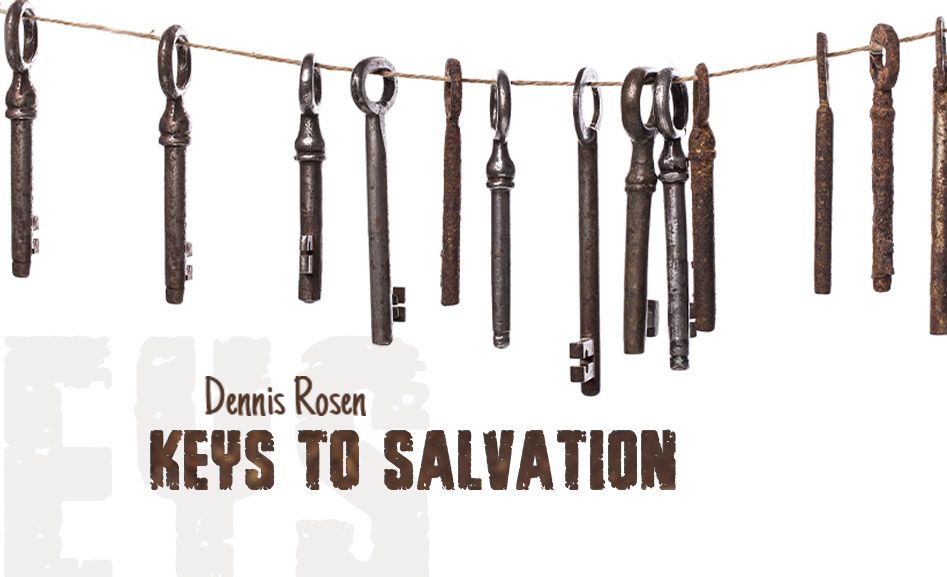
How to Win When You’re Losing
After three winning seasons, the coach forecast that his team was about to fail. Sure enough, the other “losing” team won the next year’s championship. What lessons from the coach’s strategy can we apply to our own wins and losses in teshuvah?

God commands repentance. If there were no hope after a loss, He wouldn’t ask us to try again.
After three winning seasons, the coach made this startling statement:
“This will be our last championship year. We got the higher score, but we didn’t win. The other guys played a perfect game. Give them a year of experience, and I don’t think we stand much chance.”
He was right. His opponents swept the finals the next year, while his team didn’t even make the playoffs.
He knew three powerful truths:
- You can lose when you win.
- You can win when you lose.
- There is a difference between losing and being a loser.
You Can Lose When You Win
Success is like champagne. The taste is sweet and unforgettable, but if you have too much for too long, you risk losing your edge.
Winning means that you found the right formula. It also means you stop testing new things. You replace flexibility with focus by perfecting what has proven successful.
As the model works time and again, there is a temptation to not give it 100%. If you can win with 90% effort, why waste your energy? If the way you are doing it becomes second nature, why go beyond cruise control?
When you go from doing everything and more to win to doing just enough to keep winning, you start to lose . . . even as you keep winning.
The coach saw his team slipping even though they were winning at 90%. The other team was playing at 100% with an overall strategy that was about to prove better.
Doing just enough to keep winning is a danger to us in two ways:
- We do mitzvot by rote, getting used to the “level” we are holding at, forgetting that our lifelong spiritual journey is mostly uphill, and if we stop pushing – we will slide backwards.
- We take it for granted. We risk not having gratitude for all the miracles, big and small, that make our lives. We lament the things we don’t have while expecting the things that we do have – that’s dangerous.
You Can Win When You Lose
Failure is like baking a chocolate cake that tastes awful. You know there will be a next time because the cake can be so much better.
Nobody likes to lose. That’s why we try harder when it happens.
It took years of hard work for the coach’s team to become the best. The players had no experience. They were impatient. They had the talent, but until they put in the practice and playing time, it wasn’t yet converted into skill.
The first two seasons the coach was at the helm, they lost a lot of games.
The coach only got more energized. With each post-game press conference, the gleam in the coach’s eye got bigger. He knew that with each loss, the team got better. He was less concerned about winning and more concerned about executing.
When the owner signed the coach to a five-year contract after the second losing season, the city was shocked.
The owner was a former player and knew what the coach knew:
Failure only makes you work harder. It makes you replay in your mind a hundred times how to do it better. Failures are people who try. Failures are people who want to win. Failures are people who will do it 100 times if they must in order to do it perfectly.
How many times do we try to resist the urge to sin and fail? How many times do we try to get up on time, focus during prayers, stay up that extra half-hour learning, yet fall short?
Repentance is asking ourselves how we can change the way we wake up, pray, and learn so we can resist the urge to fail. We put in so much energy to doing it right, we start to outperform the people who are doing it right.
The Gemara teaches that where the penitent stand, not even the righteous stand.
Losing vs Loser
Losing is part of the working model. The best teams have a few losing seasons before they make the playoffs. The biggest tzaddikim all made mistakes throughout their lives, leading to their perfection of certain mitzvot.
A minyan requires a sinner, just like the incense in the Temple requires a foul-smelling spice.
Like chocolate, which comes from the bitter cacao fruit, everything good must have some adversity in the mix.
Losing means trying. It means learning. It means getting better. It means a resolve to try again, even if it can result in another loss.
A failure might keep losing, but a loser stops trying.
This is why despair is the worst sin in the Torah. It’s the state where you see no point trying and changing things.
Rabbi Nachman says there is no despair in this world. There is nothing you can break that you cannot fix and make better.
Only Hashem can create something in this world that man cannot fix. Only Hashem can create something in this world that man cannot break. It’s all around us. You cannot break the air. You cannot break the water. You cannot break the earth, the stars, or the planets.
God commands repentance. If there were no hope after a loss, He wouldn’t ask us to try again.
No matter how bad things might look, in the blink of an eye, He can change everything.
Hashem only sends us defeat so we will get better in the thing He commands us to do. He sends us losses, so we will try new ways to win.
How many times in your life did you fall, only to start taking on new mitzvot and middot to get out of the rut? Could that be why Hashem sent you the rut in the first place?
A loser doesn’t see a bad spate coming from Hashem. He sees it coming from himself. He sees himself as the only fixer of his problems, and then he determines that he cannot do it.
That’s a loser.
With emunah, you know that everything is from God, and it’s so that we can win.
He sets us up so that we can emerge – either from the bottom or to the top.
***
David Ben Horin lives in Afula with his family, millions of sunflowers, and Matilda, our local camel. David‘s Israeli startup, 300 Marketing Solutions, is a lean marketing agency for startups and small businesses that creates and promotes SEO-optimized ROI-driven to the right audience on LinkedIn to make your business the star of the show.










Tell us what you think!
Thank you for your comment!
It will be published after approval by the Editor.